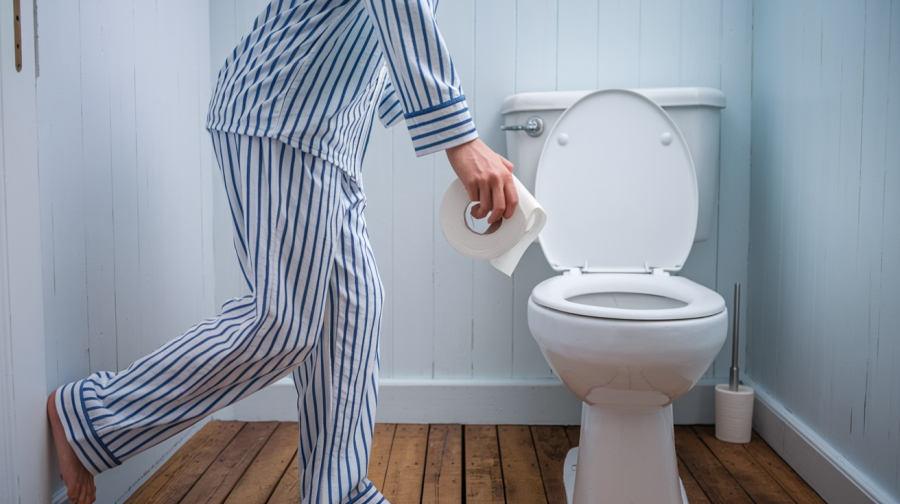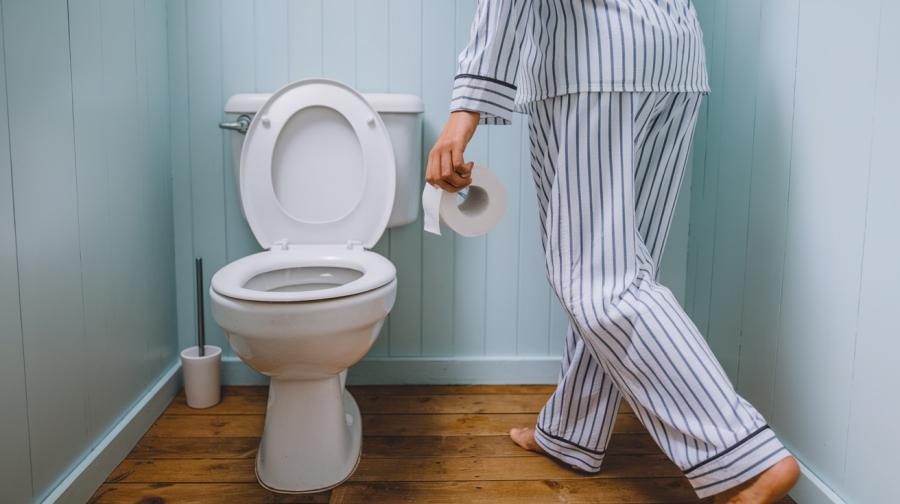A healthy diet and exercise regimen aren’t the only factors that provide insight into our well-being; our excretion habits also play a significant role. In fact, many details that we often overlook when using the restroom have profound implications for our physical health and longevity. Research has shown that individuals with longer lifespans tend to exhibit three prominent features related to their bathroom habits.
Regular Frequency
According to a study conducted at the University of Washington and published in Cell Reporting Medicine, bowel movement frequency has a considerable impact on our physiology and long-term health. It has been proven that having one to two bowel movements per day is the most beneficial.
The research surveyed nearly 1,400 healthy adults, collecting data on blood chemistry, gut microbiota, genetic information, and more. Participants were divided into four groups based on their bowel movement frequency: the constipation group (1-2 times/week), low-normal group (3-6 times/week), high-normal group (1-3 times/day), and diarrhea group.
Analysis revealed that those in the constipation group might experience a depletion of fiber and protein in their microbiota due to waste remaining in the intestines for extended periods, leading to the production of toxic compounds such as indole sulfate and cresol sulfate. In contrast, individuals with diarrhea tended to have inflammation and liver damage. For the group with a daily frequency of 1-2, beneficial gut bacteria that ferment fiber were observed, offering health benefits.
According to Dr. Xu Zhi Jie, Deputy Chief Physician of the Department of Gastroenterology at Beijing University’s Third Hospital, a bowel movement frequency of once every two to three days or fluctuating between one and three times per day is considered normal. Dr. Zheng Li Hua, Chief Physician of the Department of Anorectal at the China-Japan Friendship Hospital, also affirmed that having one to two bowel movements per day is ideal, while up to three times a day is still acceptable.

According to Dr. Xu Zhi Jie, Deputy Chief Physician, a bowel movement frequency of once every two to three days or fluctuating between one and three times per day is considered normal.
Normal Excretion Consistency
According to Dr. Yang Li Hua, a hepatobiliary specialist at Hubei Provincial People’s Hospital, normal stool is typically brown or yellowish-brown. If your stool is white and clay-like, it could indicate inadequate bile secretion and is a significant symptom of hepatobiliary issues, especially cirrhosis. When cirrhosis severely affects liver function, bile secretion diminishes, causing stool to lose its color and turn white.
Additionally, pay attention to your stool’s consistency. If you frequently experience hard, dry stool or diarrhea, you may have digestive issues. This is especially common for frequent travelers or those with unstable eating habits. Prolonged digestive problems could indicate chronic conditions like colorectal cancer, which can directly impact lifespan.
Moreover, urine color deserves attention. In a state of normal health, urine should be light yellow. However, if it turns dark and resembles strong tea for an extended period, it could indicate liver problems.

In a state of normal health, urine should be light yellow.
Ease of Defecation
Individuals with good health and efficient digestive systems tend to have more comfortable and quicker bathroom experiences. Struggling during bowel movements could indicate underlying health issues that shouldn’t be overlooked.
If you frequently experience constipation or difficulty passing stool, it may reflect a fiber deficiency in your diet or inadequate water intake.
Those who tend to skip meals or forget to hydrate due to busy schedules are more likely to encounter constipation. This challenging experience can sometimes serve as an early warning sign of other health problems.
Therefore, medical experts encourage adjusting daily habits to improve this situation. Modifying your diet and increasing fiber intake are crucial for smoother intestinal function. Fiber helps form soft stool, making defecation easier. Maintaining adequate hydration is also essential, as water softens stool, reducing friction and pressure during bowel movements.





































